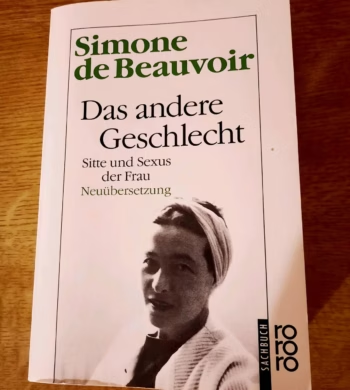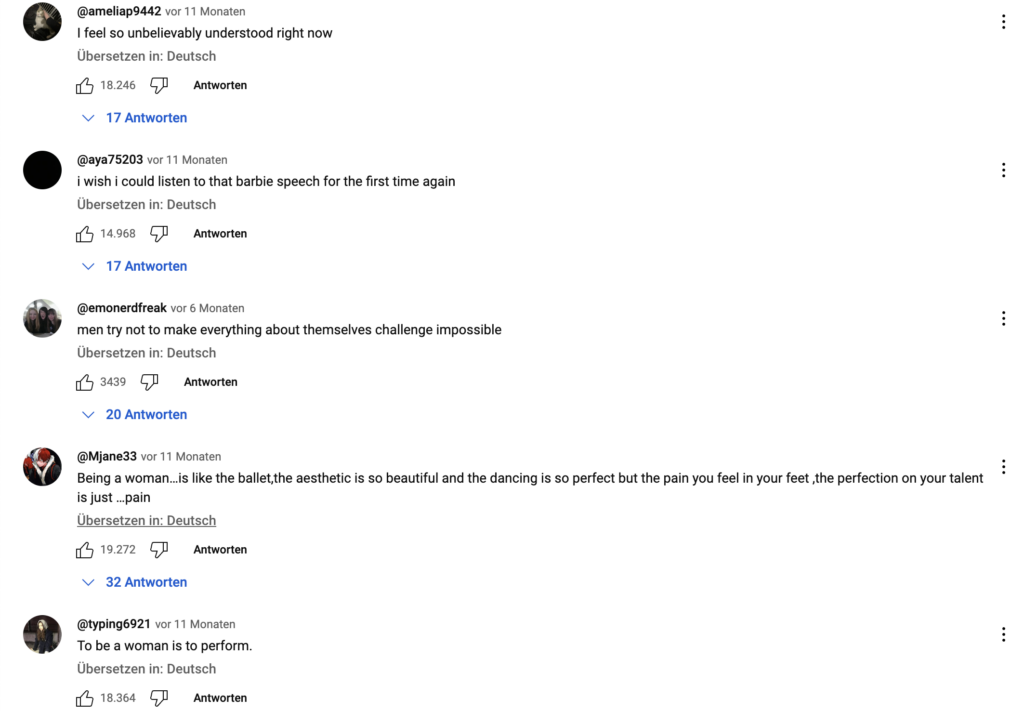Im Zuge meiner Recherche für meine Masterarbeit habe ich Mal wieder das Buch „Das andere Geschlecht“ von Simone de Beauvoir, eine der größten Feministinnen und Philosophinnen des 20. Jahrhunderts gelesen. „Das andere Geschlecht“ nimmt sich dem Dilemma an, Frauen als „das Andere“ zum Mann zu betonen und zu bewerten. Das bedeutet dass der Mann als Standard gilt und Normalität geprägt wurde.
De Beauvoir vertritt die Ansicht, dass Geschlecht keine natürliche, biologische Tatsache, sondern vielmehr ein soziales Konstrukt sei, das durch Bildung, Kultur und Gesellschaft geprägt wird. Sie beschreibt die Mechanismen, durch die Frauen in einer patriarchalischen Gesellschaft unterdrückt werden, und hinterfragt die Art und Weise, wie Frauen in allen Lebensbereichen – von der Familie bis zum Arbeitsplatz – als das „zweite Geschlecht“ angesehen werden.
Einer der zentralen Begriffe in de Beauvoirs Werk ist der bekannte Satz:
„Man wird nicht als Frau geboren, man wird es.„
Dieses Zitat bezieht sich darauf, dass Frauen nicht von Natur aus untergeordnet oder passiv sind, sondern sie diese Eigenschaften als Ergebnis gesellschaftlicher Konditionierung entwickeln. De Beauvoir fordert die Befreiung der Frau von solchen Beschränkungen und plädiert für eine Transformation gesellschaftlicher Strukturen, die Frauen als gleichberechtigte Menschen behandeln.
Soviel zu den Kernpunkten dieses Buches. Beim Lesen kam mir eine Beobachtung in den Sinn. Durch meinen Medienkonsum wurde meine For you Page auf Tiktok so konditioniert, dass mir natürlich viele Inhalte gezeigt werden, zu Themen mit denen ich mich gerade beschäftige. Hierbei stoße ich immer wieder auf Videos, in denen Männer sich mit kesser Musik und in „Thirst Trap“ mäßiger Pose als „Feminist“ „outen“ und dafür in den Kommentare gepraised werden. Noch dazu gehen sie viral weil, es so „attraktiv“ ist, wenn Männer Feministen sind. Nur zu sagen, dass man ein Feminist ist und sich so darzustellen, macht einen nicht zum Feministen. Geht man auf die Profile dieser Männer findet man Videos, wo sie sich zum Beispiel über die Texte von Shirin David lustig machen oder betonen müssen wie „schwul“ es ist Taylor Swift „zu feiern“. Hierbei ist anzumerken, dass es sich hierbei natürlich um selektive Accounts handelt und wie immer gilt „Not all men, but always men“. Zurück zum Thema: Wieso spreche ich über solche Trends. Dieser performative Feminismus nimmt dem Thema die Ernsthaftigkeit und verwässert die Bewegung. Es ist cool geworden „woke, links und feminist“ zu sein. Es bringt likes, view und exposure sich als Mann als Feminist zu präsentieren. Ob man diesen Feminismus tatsächlich praktiziert bleibt jedoch fraglich. (Social Media is not real)
Nochmal zusammengefasst: Auf Plattformen wie TikTok wird Feminismus oft vereinfacht und oberflächlich gezeigt, so dass ein performativer Feminismus entsteht. Es geht weniger darum, sich wirklich mit Geschlechterungleichheit auseinanderzusetzen, sondern um Bestrebungen nach Anerkennung. Echter Feminismus fordert mehr als das Lesen eines Buches oder das Teilen von Informationen – er verlangt eine tiefgehende Selbstreflexion und aktives Umgestalten der gesellschaftlichen Strukturen.
Quellen:
https://www.grin.com/document/96655?srsltid=AfmBOoqNwyxyrNB7l4I4hYbKRGoi-azpQSKh32uFKnwfZGE6JuNr3Hhh


